10 Important Points of Useful Information For Seafarers
Knowledge is light. It is important for every individual to be thoroughly updated with recent progresses in their field of work. Shipping is a vast industry with a huge pile of necessary and helpful information that might not be promulgated to all.
However, we at Marine Insight have a constant endeavour to pick out relevant information and share it with the maritime community. The following read provides some insight into some data that is extremely useful to all seafarers.
1. Global Integrated Shipping Information System – IMO public information cell: The IMO (International Maritime Organization) has been a driving force in promoting and safeguarding the maritime industry. Apart from raising and passing legislations and being a governing body, the IMO also promulgates a lot of information on their website with respect to shipping. The Global Integrated Shipping Information System provides a wide range of information for anyone interested in the maritime industry. Read more here.
2. Holiday pay: The MLC, as we all know, has brought in some new and fair changes into the industry. As per that, the SEA (Seafarers Employment Agreement) states that a seafarer is entitled to a paid annual leave amounting to that which he earns for 2.5 days for every month that he works. Find out more here.

3. Women seafarers: The issue of women at the workforce has been at the forefront of almost industry discussions. Shipping is one such wherein women constitute a very miniscule part of the shipboard workforce. It is for that very reason that the IMO, ITF and other such organizations have laid such high emphasis on the inclusion of more women in the industry. It, therefore, becomes an imperative issue to address the various problems, rights and regulations with regard to this aspect. If you are a woman seafarer, thorough information about the same can be found here.

4. Benefits of maritime unions: Most nations have dedicated maritime unions (separate for officers and crew in India) for safeguarding and providing a host of benefits to seafarers. Not only do they assist in legal matters, but some also have a provision with respect to medical benefits, financial assistance and guesthouses across different states to enable seafarers to save money when they travel. Most of them have membership set at nominal rates to enable all to avail of the benefits. If you are a seafarer, you must enrol yourself with these unions.
5. Seaman’s club: Normally, it is the seaman’s club that becomes home to a seafarer when they have to spend a couple of months in order to prepare for their examinations. Generally located in proximity to the governing authority conducting the exams, seaman’s clubs across the world also provide an array of facilities for seafarers spanning nationalities. Most ports have a seaman’s club that assists seafarers with the local know-how, be it SIM cards, local entertainment venues, cheap calling, presence of a church etc. It is also a great place to meet other sailors from across the world and thereby bond over the common interests (which turns out to be quite therapeutic considering the heavy workload while onboard). While travelling for vacation (with family), it also helps in saving a lot of money by providing much cheaper accommodation as compared to hotels in the vicinity.
6.War zone: Companies in liaison with the ITF (International Trade Federation) have to let seafarers decide if they want to sign off or continue sailing if the vessel is headed towards a war inflicted zone. It entirely depends on the seafarers and it is mandatory for the company to allow the individual to sign off without any cost to the sailor irrespective of the tenure of contract served. The same applies to piracy-inflicted zones and the provision also entitles the seafarer to double his/her pay for the number of days spent in the war/piracy areas if he/she decides to continue sailing on his own accord.

7. Provident funds for seaman: Retirement can be rough for non-governmental professionals who do not have the luxury of a pension. However, that issue has been addressed to by way of a provident fund that facilitates a chunk of savings that belongs to a seafarer upon retirement. Most companies allocate a certain amount of money into the provident fund for an individual thereby cushioning a seafarer financially when in need. Detailed provisions of it (as per the Directorate General of Shipping, India) can be found here. The provisions might mildly differ based on nationality; a quick Google search reveals information based on country.
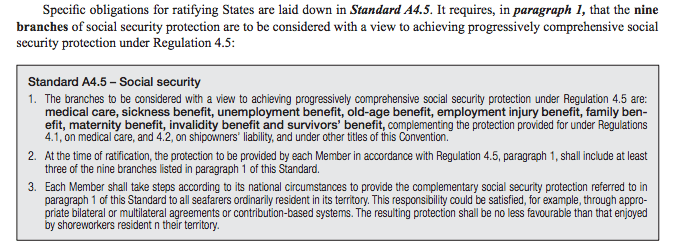
8. Night work prohibited for young cadets: It is not new to see cadets of 16-17 years that join ship to fulfil their dream of a rewarding career. And as with any profession, the merchant navy demands a great deal of effort and hard work. However, it is also risky to have such young cadets work by the night, mostly pitch dark while at sea- certainly a skill mastered over time and with experience.
As per the ILO, night work of seafarers under the age of 18 shall be prohibited. And for the purposes of this statement, the term ‘night’ is defined as per national law and practice. To address the issue of a clear understanding, it (night) shall cover a period of at least nine hours starting no later than midnight and ending no earlier than 0500 hours.

9. Rights in Case of Legal Actions
If vessel/ seafarer is involved in any type of accident which may lead to prosecution/ prison, the following rules must be noted.
If your vessel is involved in a maritime accident, there are international guidelines to ensure that you are treated fairly if there is an investigation or if you are detained following the accident.
Be aware that information given in the investigation of a maritime accident could be used against you in a criminal prosecution. So, if you are questioned about an accident involving your vessel, ask for a lawyer if necessary, and contact your union and/or company for advice and assistance.
The state under which your ship is flagged has the right under international law to institute legal proceedings requesting the immediate release of any seafarers detained following an accident or pollution incident at sea. Unfortunately, Flags of Convenience (FOC) states are notorious in failing to pursue this right on behalf of crews of ships under their flags.
Your shipowner and the ship’s insurers should provide you with legal support and advice if you are arrested or detained, and support any welfare needs that arise. International Maritime Organisation (IMO)/International Labour Organisation (ILO) guidelines on the fair treatment of seafarers in the event of a maritime accident are available for viewing, using the link on the right of this page.
10. Sickness or Injury Resulting in Incapacity For Work
A seafarer met with an injury on board ship must be provided with fully support from the shipowner. Also, where the sickness or injury results in incapacity for work the shipowner shall be liable to:
a) to pay full wages as long as the sick or injured seafarers remain on board or until the seafarers have been repatriated in accordance with this Convention; and
(b) to pay wages in whole or in part as prescribed by national laws or regulations or as provided for in collective agreements from the time when the seafarers are repatriated or landed until their recovery or, if earlier, until they are entitled to cash benefits under the legislation of the Member concerned.
Caught up in the extreme work pressure onboard, most seafarers forget that there are a host of benefits and assistance at their disposal provided they are willing to look in the right direction. The merchant navy is not all about travel and earning money by working all the time; as has already been mentioned above, the industry as a whole is also on a constant quest for the betterment of the lives of every seafarer.
Over to you..
What more points can be added to this list? Let’s know in the comments below.
Reference: MLC 2006
You may also like to read – What is Death on the High Seas Act?
Do you have info to share with us ? Suggest a correction

About Author
Shilavadra Bhattacharjee is a shipbroker with a background in commercial operations after having sailed onboard as a Third Officer. His interests primarily lie in the energy sector, books and travelling.
Latest Maritime law Articles You Would Like:
Latest News
- What is the Purpose of DG Shipping?
- What are Logistics Risks?
- How Port and Terminal Operators Can Control Emissions?
- Minimum Quantity Commitment (MQC) and Liquidated Damages in Container Shipping: Concept and Relevance
- MARPOL (The International Convention for Prevention of Marine Pollution For Ships): The Ultimate Guide
- The Ultimate Shipping Container Dimensions Guide
Related Posts
Subscribe To Our Newsletters
By subscribing, you agree to our Privacy Policy and may receive occasional deal communications; you can unsubscribe anytime.





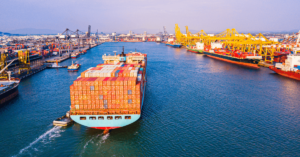
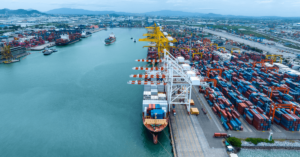
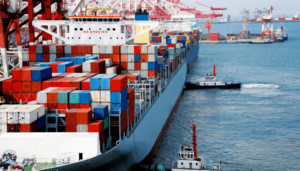
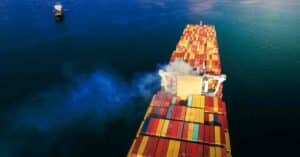


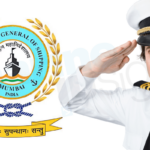

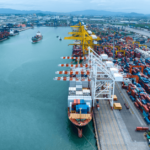















I would like to know the fixed overtime hours to work in a month.
Why has MLC not restricted the fixed hours period during a month. I am sailing with a basic pay for 44 hours of watch keeping a week. So as a oow I work for 68 hrs weekly. 8 hrs of watch and overtime 2 hrs daily, Sometimes more.
This is just for information of how many hours should I work compulsory to complete my overtime quota in a month.
@Prajith: Please check this article for more info:
https://www.marineinsight.com/maritime-law/the-ultimate-guide-to-work-hours-rest-hours-on-ships-including-stcw-2010/